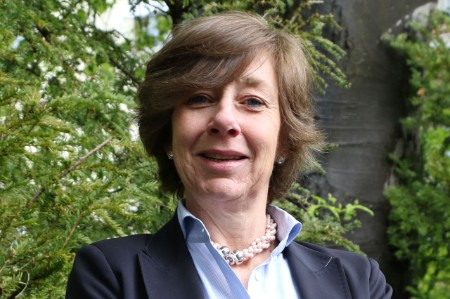Insource knowledge
In recent years, many European companies have set up sizable internal audit teams, which report directly to the audit committee. They are an important element of the formal control network, and they can make sure that the values and the culture of a company are respected.
But I would also like to make a case for having a smaller internal audit team and supplementing it with outsourced expertise when necessary. Similarly to production peaks, there are also knowledge peaks, when special skills and expertise are required. For example, if a company has recently expanded into Indonesia, the internal audit team might not have the required understanding of the Indonesian business environment to adequately perform an audit. That is where outsourcing comes into its own. External consultants can help a company to cover those knowledge peaks.
Promote diversity
In 2002, four years before Norway passed a law that required at least 40% of company board members to be women, I was voted onto the board of Norwegian telecoms company Telenor and then asked to join the audit committee. I hope that the work I’ve done and the impact I’ve had has shown that I was a good choice, and I’ve been on other boards since.
The debate about quotas helped open people’s minds. Diversity isn’t just about women, but also about mixing different career or cultural backgrounds. Similarly, global companies need boards with exposure to different geographies, functional expertise and industry verticals. Diversity helps to create a culture that stimulates debate and, ultimately, delivers better outcomes.
Culture and values matter
In an increasingly international business world, where news of breaches spreads around the globe within seconds, a company can’t just rely on a formal control framework. The informal control environment built on culture and values is equally important, and this has been a focus of my work on audit committees. Executives need to trust each other to do the right thing. Ideally, they feel comfortable challenging each other.
If a serious breach occurs, the company needs to be ready to take punitive action and the responsible person has to go. Creating that culture starts with setting the right tone at the top. Executives are role models whose behavior and words have a major influence on employees. They should also encourage people to take part in culture days and training courses for these control systems by setting an example and participating themselves.
Listen to your auditors
Working with your auditors over a long stretch of time builds trust, and this trust makes it possible for audit firms to provide valuable insights, aside from delivering a “true and fair view” of the company’s finances. They can raise concerns about risk areas the company should be aware of early on.
If auditors work well with an audit committee, they might point to the fact that a team in a foreign country is not functioning well, or that there is a lack of documentation at a subsidiary – not bad enough to jeopardize the audit firm’s work, but maybe worth looking into. External auditors can be a valuable resource for these kinds of observations. Again, it’s all about creating a culture of trust.


